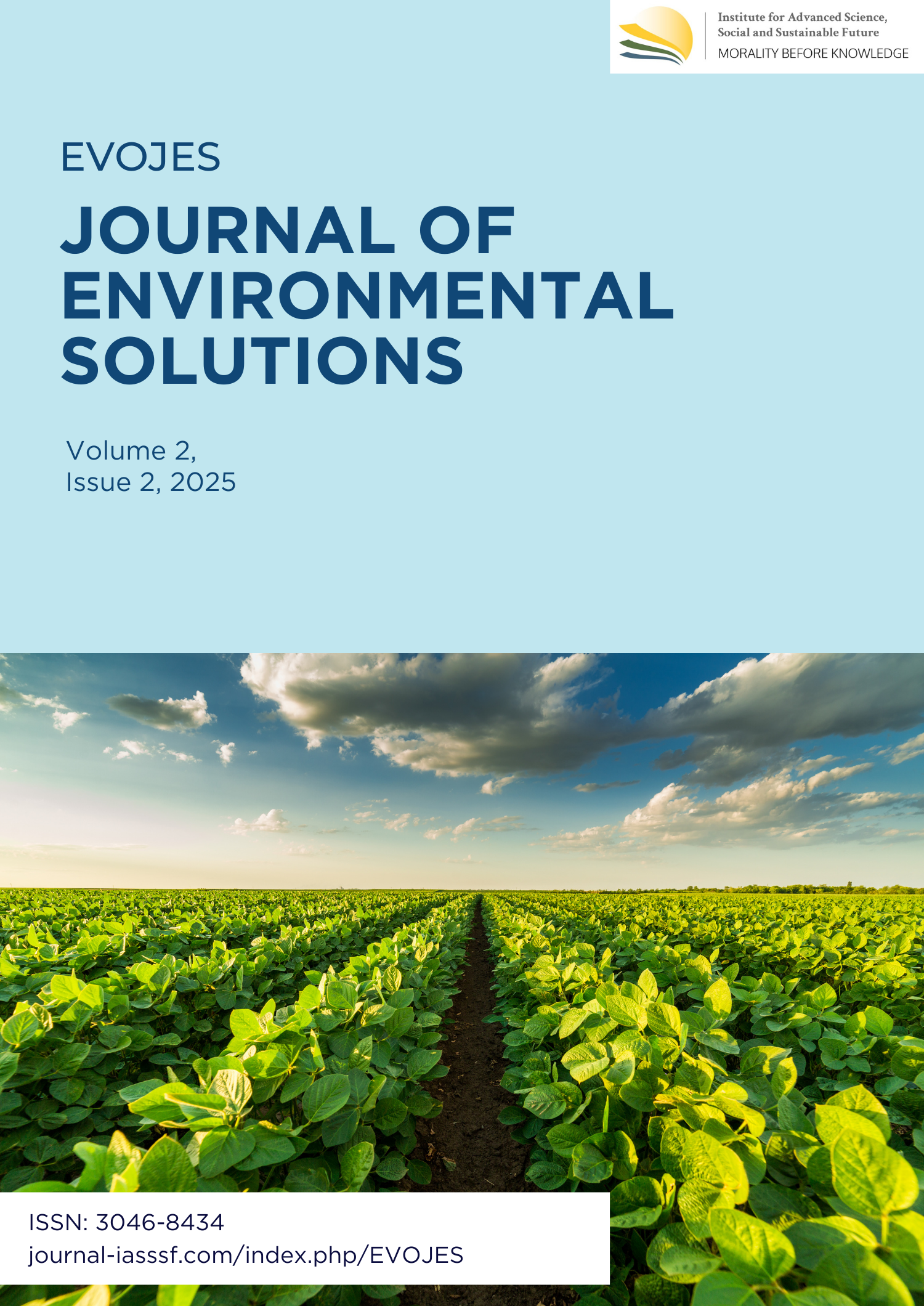Interactive nutrition education for pregnant women: Strengthening maternal health and environmental sustainability in stunting prevention
DOI:
https://doi.org/10.61511/evojes.v2i2.2025.2235Keywords:
interactive education, pregnant women, nutrition understanding, stuntingAbstract
Background: Pregnancy is a critical period that determines both maternal and child health while influencing household food choices and environmental sustainability. Limited nutrition literacy during pregnancy not only increases the risk of malnutrition and stunting but also perpetuates unsustainable dietary practices that burden local ecosystems. This study aims to optimise pregnant women’s nutrition understanding through interactive education programmes that strengthen maternal health and promote environmentally sustainable practices. By emphasising balanced nutrition, positive attitudes, and the use of local food resources, the programme seeks to prevent stunting while reducing ecological impact. Method: A quasi-experimental pre-test and post-test design was employed with 50 pregnant women selected through purposive sampling. The intervention consisted of animated educational videos, interactive simulations on sustainable food choices, quiz-based learning, and guided group discussions with health workers. Findings: Findings demonstrated a significant improvement in nutrition knowledge among the intervention group compared to the control group (Δ = 2.96 vs 0.4; p < 0.001). Beyond knowledge, participants reported greater awareness of the benefits of local, environmentally friendly food consumption patterns as part of stunting prevention efforts. Conclusion: Interactive education effectively enhances maternal nutritional literacy while integrating environmental sustainability into dietary behaviour. This dual benefit highlights the potential of participatory, eco-conscious educational models to improve maternal and child health outcomes while fostering sustainable food systems at the community level. Future researchers can compare various other education methods, such as digital-based education or a combination of conventional and interactive education, to determine the most effective approach in increasing mothers' knowledge and behavioural change in stunting prevention. Novelty/Originality of this article: This study uniquely integrates maternal nutrition education with environmental sustainability, using interactive, eco-conscious methods to simultaneously prevent stunting and promote sustainable dietary practices.
References
Anggraini, D., Sari, Y., & Widodo, Y. (2022). The relationship between the level of knowledge of pregnant women and healthy eating patterns during pregnancy. Journal of Nutrition and Public Health, 10(2), 88-95. Azizah, A. M. et al. (2022) ‘Meta-Analysis: Breastfeeding and Its Correlation with Stunting’, Journal of Maternal and Child Health, 07(03), pp. 334–345.
Bhutta, Z. A., et al. (2013). Evidence-based interventions for improvement of maternal and child nutrition: what can be done and at what cost? The Lancet, 382(9890), 452–477.
Florence, A. (2017). The Relationship between Nutritional Knowledge and Consumption Patterns with Nutritional Status among TPB Students at the Bandung Institute of Technology School of Business and Management
Hidayati, R., Putri, A. P., & Sari, D. (2024). The effect of using the Electronic Diary Food application on increasing nutritional knowledge among pregnant women. Journal of Nutrition and Public Health, 12(1), 45-56. Retrieved from https://ejournal.poltekkesjakarta1.ac.id
Ministry of Health of the Republic of Indonesia. (2011). Guidelines for the Implementation of Pregnant Women Classes. Jakarta: Ministry of Health of the Republic of Indonesia
Kusuma, D. F., Handayani, T., & Putri, R. A. (2020). The level of knowledge of pregnant women in rural areas regarding pregnancy nutrition. Journal of Public Health, 12(1), 45-52.
Notoatmodjo, S. (2018). Education and Health Behaviour. Jakarta: Rineka Cipta.
Purbadewi, L and Ulvie 2013, 'The Relationship Between Knowledge Levels About Anaemia and the Incidence of Anaemia in Pregnant Women', Journal of Nutrition, Muhammadiyah University of Semarang, vol.2, no.1, April 2013
Putri, F. A., Lestari, M., & Rahmawati, D. (2023). The effectiveness of nutrition education based on Focus Group Discussions on the nutritional understanding of pregnant women. Journal of Applied Health, 10(2), 78-89. Retrieved from https://journal.universitaspahlawan.ac.id
Putri, S. N., Setyaningsih, W., & Wijayanti, E. (2020). The effect of interactive education on increasing pregnant women's knowledge of balanced nutrition. Journal of Maternal and Child Health, 8(1), 30-38.
Rahayu, N. S., Widyaningrum, R., & Dewi, N. R. (2021). The effect of health education on the level of knowledge of pregnant women in preventing anaemia. Journal of Public Health, 9(2), 55-63.
Rahayu, N., & Lestari, P. (2023). The impact of chronic energy deficiency (CED) in pregnant women on the risk of pregnancy complications. Journal of Health Sciences, 9(1), 22-34. Retrieved from https://jik.stikesalifah.ac.id
Rahman, A., Yusuf, A., & Fitriani, D. (2019). Factors influencing pregnant women's knowledge about pregnancy in areas with limited access. Journal of Reproductive Health, 7(3), 112-119.
Sari, A. P., Nugraheni, S., & Dewi, R. (2024). The role of nutrition education in preventing stunting in children since pregnancy. Journal of Child Nutrition and Health, 8(1), 33-44. Retrieved from https://jurnal.poltekkespalu.ac.id
Suparman, T., & Indriani, R. (2023). Strategies to increase nutritional awareness among pregnant women in support of the 1000 HPK programme. Journal of Maternal and Child Health, 11(3), 55-67. Retrieved from https://repository.ipb.ac.id
UNICEF Indonesia. (2012). Summary of maternal and child nutrition study. Retrieved from http://www.unicef.or.id.
UNICEF. (2020). The Situation of Children in Indonesia – Trends, Opportunities and Challenges in Fulfilling Children's Rights. UNICEF Indonesia, 8–38.
Published
How to Cite
Issue
Section
Citation Check
License
Copyright (c) 2025 Nurhidayah Tiasya Sanas, Shulystiawaty Desy Resky

This work is licensed under a Creative Commons Attribution 4.0 International License.














